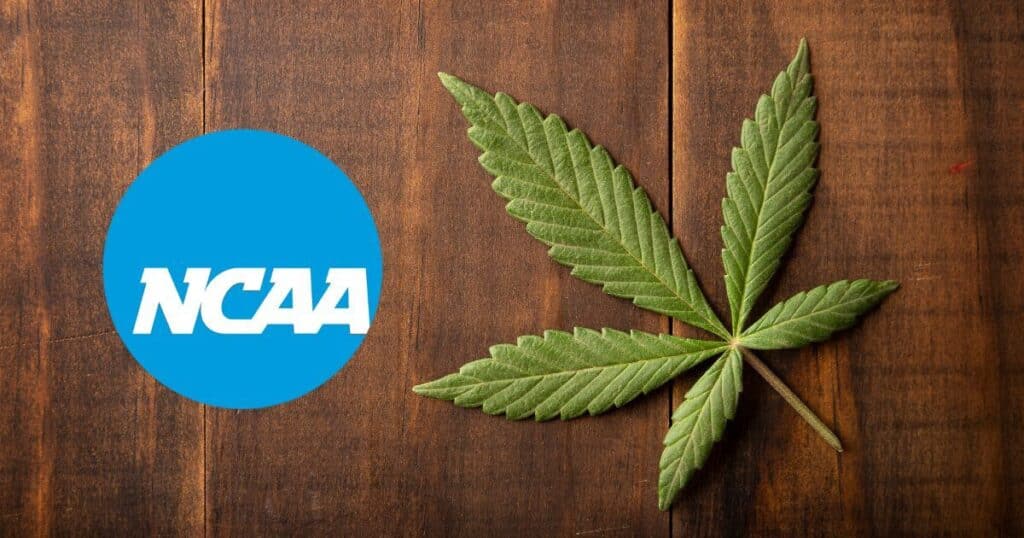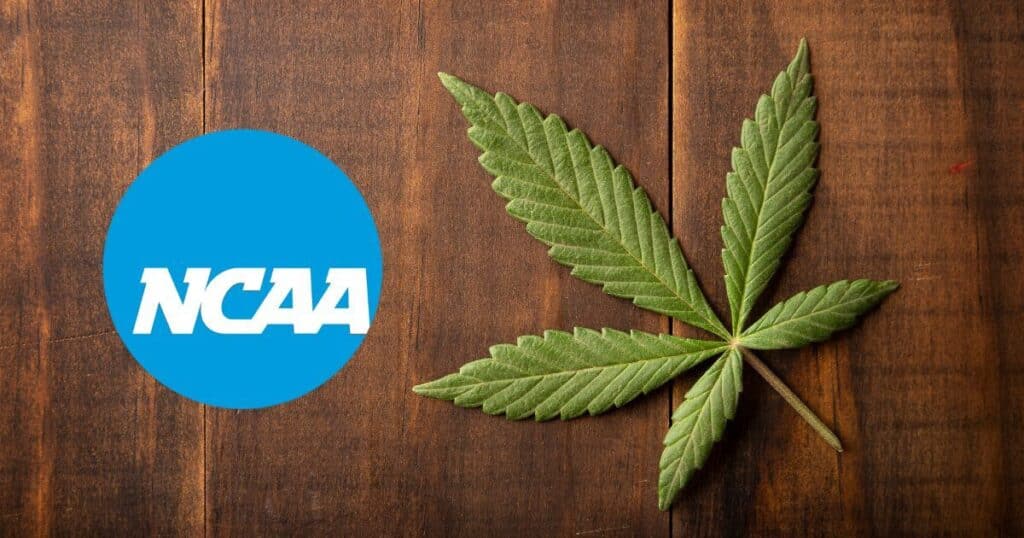The NCAA has traditionally held a strict position on cannabis use in college sports. However, a major policy shift occurred on Tuesday when the NCAA Division I Council voted to remove cannabinoids from the banned substance list for championships and postseason football participation, effective immediately. This decision signifies a pivotal change in how student-athletes cannabis use is treated, aligning with the broader trend of increasing acceptance of cannabis in sports.
DI Council votes to remove cannabinoids from banned drug class for championships and postseason participation in football. Decision not final until meeting concludes Wed.
— NCAA News (@NCAA_PR) June 25, 2024
Rise of Cannabis-Friendly Policies
Over the past few years, there’s been a growing recognition of the benefits of cannabis, particularly in the context of wellness and recovery. This cultural shift has seen nearly half of the United States legalize its use for recreational purposes, and 38 states have medical marijuana. The NCAA’s recent vote to remove marijuana from its banned substances list is a reflection of this evolving perspective.
Effective immediately, the NCAA has decided to treat cannabis in the same way as alcohol. This means that student-athletes will no longer face penalties for cannabis use during championships and postseason play. You can find the amended rule here, starting on page 29. The main focus of this reform is to emphasize student-athlete health and well-being over punitive measures.
The historical approach to drug testing in college sports has often been criticized for its punitive nature. Positive tests for marijuana could result in an entire season of lost eligibility, significantly impacting an athlete’s career. This new rule change is a step towards a more compassionate and understanding approach, recognizing that cannabis does not provide a competitive advantage.
No Competitive Advantage Says NCAA
The primary motivation behind this policy shift is the health and well-being of student-athletes. Josh Whitman, chair of the council and athletics director at Illinois, emphasized that the drug testing program should focus on integrity rather than punishment. By removing cannabinoids from the banned substances list, the NCAA aims to support athletes in making healthier choices.
“The NCAA drug testing program is intended to focus on integrity of competition, and cannabis products do not provide a competitive advantage,” Whitman said. “The council’s focus is on policies centered on student-athlete health and well-being rather than punishment for cannabis use.”
One of the most immediate benefits of this change is the retroactive application of the new rule. Student-athletes currently serving penalties for cannabis-related violations will have their penalties discontinued.
The NCAA has also highlighted the importance of harm-reduction strategies. By treating cannabis like other non-performance-enhancing drugs, the focus shifts to educating athletes about responsible use rather than penalizing them. This approach aligns with the recommendations from the NCAA’s Committee on Competitive Safeguards and Medical Aspects of Sports (CSMAS).
Currently, the rule change only applies to championships and postseason participation in football, and exclusively within Division I. This limited scope means that regular season games and other sports within the NCAA’s purview still adhere to the previous guidelines regarding cannabis use.
Despite this initial restriction, there is optimism that this policy shift will act as a catalyst for broader reforms. Advocates hope that the NCAA’s progressive stance will eventually influence all divisions and sports, extending to a more lenient and understanding approach across college athletics as a whole.
Furthermore, this change may set a precedent that encourages professional sports leagues to reevaluate their cannabis policies, thereby promoting athlete health and well-being at all levels of competition.
Cannabis Making Its Way Into the Sports World
Cannabis has increasingly found its way into the sports world, with various leagues recognizing its potential benefits and declassifying it as a performance-enhancing drug. This shift acknowledges cannabis as a healthier alternative to pharmaceuticals that have historically been pushed on athletes across all sports.
MLB
The MLB periodically tests players for various drugs and substances, but marijuana is no longer one of them. Since 2019, THC is no longer classified as a “drug of abuse.” This change has allowed players to explore cannabis use for its therapeutic benefits without fear of punitive action.
NHL
In the NHL, players undergo annual THC testing, but positive test results don’t result in punishment. Instead, the league offers players with high THC levels a treatment and management plan through its Substance Abuse and Behavioral Health program, treating chronic cannabis use as a health issue similar to alcoholism.
NBA
The NBA reached a bargaining agreement with the National Basketball Players Association for the 2023-2024 season, which includes a stipulation that the league will no longer test players for marijuana use. This progressive approach allows players to use cannabis without risking their careers.
UFC
In the UFC, athletes who test positive for carboxy-THC, the psychoactive ingredient in cannabis, will not violate the UFC Anti-Doping Policy unless evidence shows they used it intentionally for performance enhancement.

It’s not just athletes who benefit from relaxed cannabis regulations. Fans are also enjoying the perks. As reported earlier this week, the Portland Pickles became the first sports team to offer THC-infused beverages at their home games, opening new avenues for fan enjoyment and engagement.
By recognizing the benefits of cannabis use and removing the associated stigmas, sports leagues are paving the way for a healthier, more supportive environment for athletes and fans alike.

















